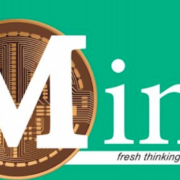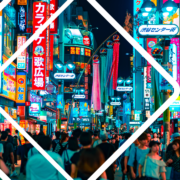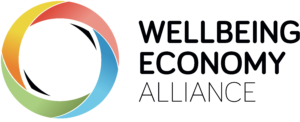Which future narratives should new economic approaches be built on to truly serve all life on Earth?
The first 36×36 publication launches today, summarising the thinking to date of the 36×36 network on how to approach Narratives. “Which future narratives should new economic approaches be built on to truly serve all life on earth” is the first of six Thematic Exchange publications, all of which will be made available online.
 The paper draws upon lessons from the Narratives Thematic Exchange event where the 36×36 participants were in dialogue with renowned “renegade economist” Kate Raworth. Kate explained that she focuses on metaphors of living systems, synergy, mutualism, and cycles of life. For example, she intentionally does not use the word environment and instead uses the more inclusive term “the living world”. She encourages thinking about the choice of words and how they express living systems as much as possible.
The paper draws upon lessons from the Narratives Thematic Exchange event where the 36×36 participants were in dialogue with renowned “renegade economist” Kate Raworth. Kate explained that she focuses on metaphors of living systems, synergy, mutualism, and cycles of life. For example, she intentionally does not use the word environment and instead uses the more inclusive term “the living world”. She encourages thinking about the choice of words and how they express living systems as much as possible.
Narratives create and anchor worldviews; they connect our stories, identities and values. They can emerge or can be orchestrated. The womxn of 36×36 shared their own wisdom on narratives, much of which is summarised in the paper. Lufuno Barro, for example, says:
 “A narrative consolidates principles and values. Narratives underline most of the existing models. New narratives need to foster resonance across key players towards a more collective effort in designing the new model.”
“A narrative consolidates principles and values. Narratives underline most of the existing models. New narratives need to foster resonance across key players towards a more collective effort in designing the new model.”
Xinlin Song says:

“Narratives are a powerful portal to a different reality, and it comes with meanings and provides guidance where we could go. When we create new narratives, it is important to help people to find a way to connect with old ones to understand why we need new ones and how to transform into new narratives with the old ones still so overpowering around us.”
As an output from the Thematic Exchange session and through focused work on narratives within a dedicated Collective Action team, the 36×36 network fellows have formulated eight recommendations for the future narratives needed for economic system transformation. Future enlivening narratives must:
- Be different from a unified, monoculture dominating economic narrative in the past 200 years, we envision a new economic story will be one that celebrates diversity.
- Be a constellation of narratives, substantiated by theories, models and approaches around the world that serve wellbeing on a healthy planet. They follow similar principles, and aiming the same direction, but each one unique and fitting their own conditions.
- Value “nurturing diversity” as one of (if not the most) important features of bringing in the feminine quality.
- Recognise the importance of plurality and openness, which comes from marrying the masculine and feminine. There is humility behind the recognition that we are all part of a bigger whole, and that we all have something to contribute.
- Hold diversity whilst bring unity with different communities – be it physical community or non-physical networks.
- Learn the language of nature and learn from how nature works to inspire the way we work with narratives, because nature creates perfectly resilient ecosystems.
- Bring in play and joy into the space, to enable more connection. Using images and metaphors that people can resonate with in their particular context helps to relate to living systems and find ways of expressing this connection.
- Invite exploration of how small steps fit the larger purpose and connect to underlying principles. They are something that is a living, a moving system for the vibration that we want to put out into the world.
To learn more about the thinking of the 36×36 network on narratives, the perspectives brought by Kate Raworth to the Thematic Exchange, and these recommendations for the future, download the paper now.
Later in the project, there will be an opportunity to participate in public dialoague events around Narratives and the other five themes that the network is working on. To be the first to hear about these events, and all updates from the 36×36 network, be sure to sign up to our newsletter.



















